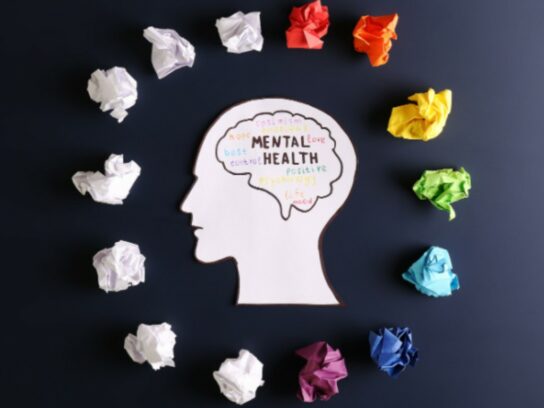
July marks National Minority Mental Health Awareness Month. Advocates say there is a desperate need to bring more mental health resources to underserved communities. They also want to end the stigma embedded in some communities to seek mental health treatment.
The late author, advocate, and co-founder of the National Alliance of Mental Illness (NAMI) Bebe Moore Campbell pushed to create the Awareness Month. In 2008, two years after Campbell died of brain cancer, Congress honored her memory. It passed a resolution that established National Minority Mental Health Awareness Month.
Community Concern
The need to improve mental health care is a concern around the country and here in Montgomery County.
“Many minorities and people of color in Montgomery County face significant challenges when seeking mental health services,” says Nyree Price, Director, Therapeutic Services at Shady Grove Medical Center Behavioral Health.
“Stigma around mental health, past experiences of discrimination, and a lack of culturally competent care are major barriers,” Price said.
Kandy McFarland is Vice President, Behavioral Health at Shady Grove Medical Center. She said caring for one’s mental health is just as important as looking out for a person’s physical health.
“Mental health is the foundation of our overall well-being, and caring for it is essential for energy, motivation and self-care.We recognize the ongoing challenges for minorities and people of color in accessing mental health services. However, Montgomery County is making strides to improve access through various coalitions. Shady Grove is proud to support these efforts,” McFarland said.
Making a Difference
Many non-profit organizations in the County also are working to improve people’s mental health. Kimberly Fogg is the Founder and Chief Mindfulness Officer of Global Sustainable Partnerships. Her group is involved with several initiatives that try to help seniors, youth, and teens become more attuned with their mental wellness.
“I think we really have to distinguish between mental health disorders and people who are just having challenges with just navigating life, in particular our kids,” Fogg said.
She estimates a small portion of children are dealing with actual mental health disorders while a vast majority of youth simply “has not been taught vital life skills to learn self-awareness, coping skills, and how to deal with conflicts.”
Changing Longheld Beliefs
Fogg said one of the biggest hurdles minority communities face is changing their views about mental health challenges.
“It’s become one vicious cycle. The problem goes from generation to generation, especially the stigma associated with mental health. In African American and immigrant communities, people do not share their business. They do not make it known there is an issue happening in their household or in their community. These are the cultural nuances blocking progress and we really need to break down those barriers,” Fogg said.
New App For Youth
Her organization has partnered with The Black Physicians and Healthcare Network (BPHN) and the Montgomery County Recreation Department (MCRD) to create an app to address mental health concerns among young people in the community. The app is called ‘Vibe Checkup’. It will debut in September. Fogg hopes teens 13 and over will download the app.
“We really believe that if we get access to our kids at an early age, especially as they are going through puberty, that they can have the foundation and the tools they need to help them with their mental wellness,” Fogg said.
“The app is actually in response to me working with kids, parents, and teachers in the community. I talked with them and received feedback. The kids are not talking to their parents. The parents do not know how to talk with their kids. There is just so much tension. So we have to figure out a way to make our kids feel more connected,” Fogg added.
‘Vibe Checkup’ App
The ‘Vibe Checkup’ will protect teens’ privacy. Teens do not have to share their personal health information. However, the app will ask teens how they are feeling each day. Youngsters can choose from a slate of emoji’s to express their feelings. Students also can share their feelings with a trusted adult. It could be a parent, relative, teacher, or guidance counselor. Teens can share a text message or send a video that share their feelings. The app provides support by having a trusted adult help keep track of their mood.
The app also will provide a library of resources that users can access if they have questions or need immediate assistance.
‘Vibe Checkup’ is still undergoing testing, and when it makes its debut, Fogg believes the app has the potential to make a difference in the minority community.
Better Access to Health Care
She said another key to improving mental wellness in underserved areas is better access to health care. She said African American, Hispanic, and immigrant communities still do not have enough access to health professionals with a culturally specific connection. Previous research has shown when minority members are matched with a health care professional who looks like them and understands their communities, patients’ health outcomes are better.
“One of the things we really need to look at is how can we reinvest in our communities. We need to provide resources and funding to allow younger people to get the degrees and certifications they need so they can come back and serve within their own communities,” Fogg said.

Comments are closed.